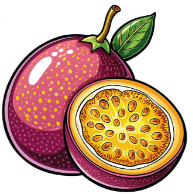Impact Crops

Tomatoes
Perfect for sauces, salads, juices, and fresh consumption. Thrives in controlled greenhouse environments for year-round yield.

Ginger & Turmeric
High-value spices used globally in food, medicine, and wellness sectors.
Tree Tomato (Tamarillo)
Fast-yielding fruit crop with niche local demand.

Passion Fruit
Premium fruits suitable for controlled-environment cultivation.
Bird’s Eye Chilli
Export-friendly spice with long shelf life.
Red pepper
Red peppers are a powerhouse of Vitamin C and beta-carotene. With their sweet flavor and crisp texture, they’re ideal for fresh salads, cooking, or drying for spice production. A high-value crop that thrives in greenhouse environments.
Cucumber
Refreshing, hydrating vegetable composed of over 95% water. Cucumbers are low in calories, and high in fiber.
Moringa
Drought-tolerant superfood with uses in health, cosmetics, and food processing.
Empowerment & Inclusion
Training in financial literacy, Nutrition Education, support for savings groups, and investment planning for long-term economic independence.
Get Involved
The model is designed to be scalable across Rwanda’s swamp regions and adaptable to various agro-ecological zones. With the right support from partners, this project can become a national model for women-led agribusiness transformation.
Support the Mission